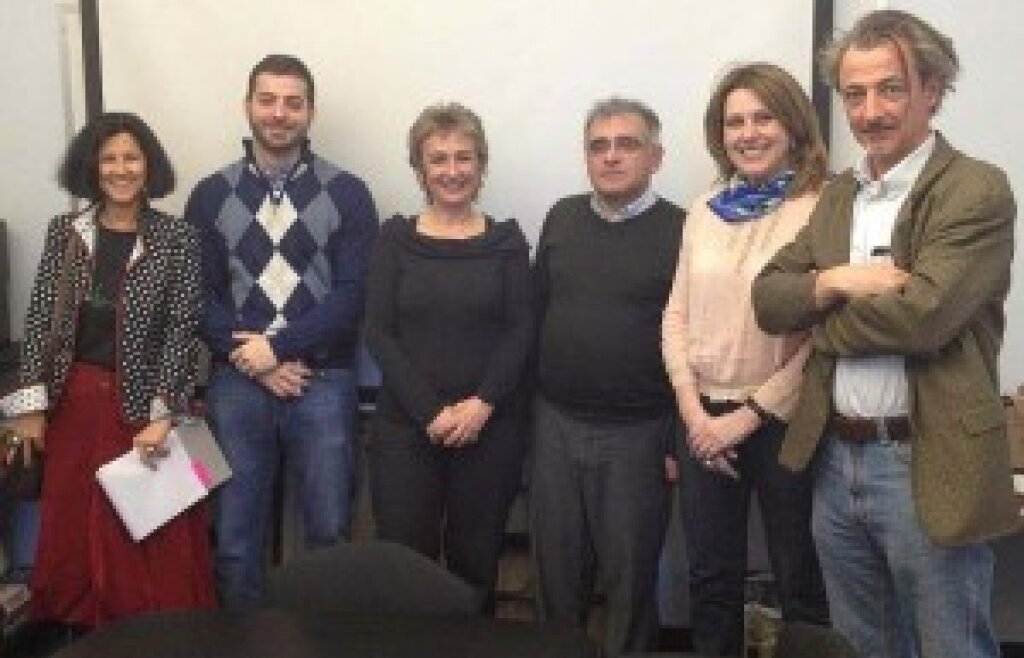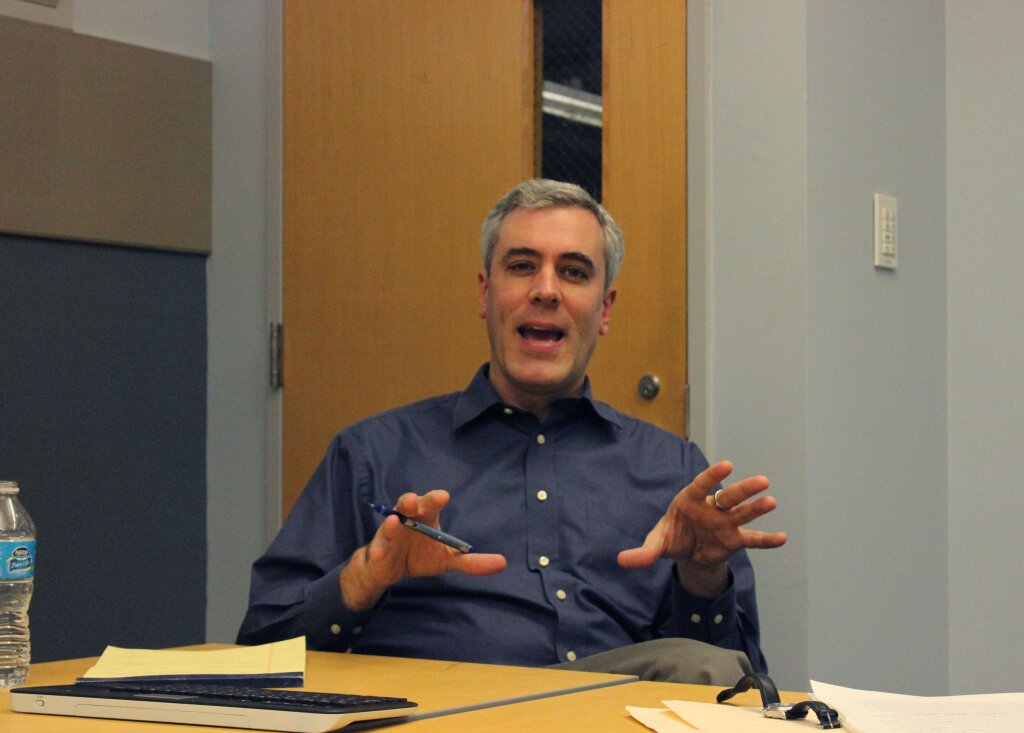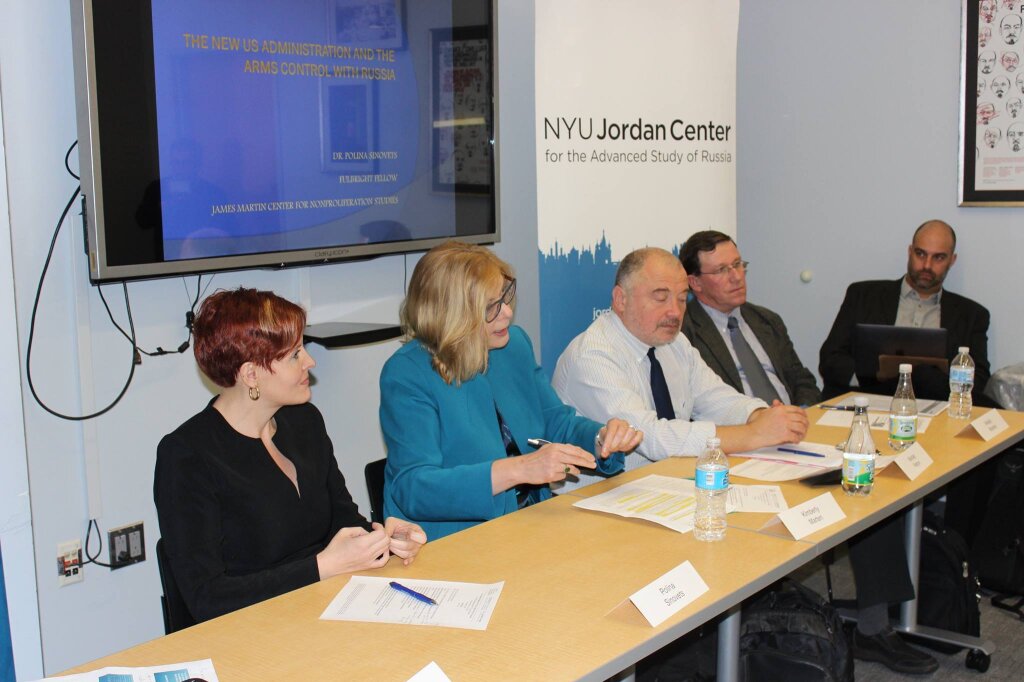Watch the video of the event here
On Friday, March 29, the Jordan Center was pleased to welcome a number of speakers to participate in a lively discussion on movements of Greeks and Russians of various sorts around and across the Mediterranean. Colleagues from Greece and the US working on perhaps would be considered an unusual topic had the chance to share work and ideas with great success.
Gelina Harlaftis of Ionian University kicked off proceedings with a somewhat surprising fact: in the present day, Greek companies control so many cargo ships that Greece is the proud bearer of the largest national shipping fleet by far. Her paper tracked the development of Greek shipping during the 18th and 19th century, arguing that Greek seafarers made a name for themselves partly by dominating the Black Sea grain trade in a large number of small Mediterranean ports. Harlaftis sees the connection between Greeks and Russians as primarily economic; which led to one questioner asking if perhaps alongside – or even instead of – a focus on capitalist connections between Greece and Russia, we should consider them as linked by their common Christian Orthodoxy.
This mention of religion leads quite nicely to Nikolaos Chrissidis’s paper on Russian religious pilgrims travelling through Odessa on their way to Mount Athos and to Palestine. (Chrissidis’s was the third presentation; we will return to Everydiki Sifneos on Odessa shortly.) Even as Chrissidis takes a cultural history approach and focuses on religious connections, his paper additionally showed how economics and business played a crucial role in pilgrims’ experiences of cross-Mediterranean travel, albeit in an unexpected way. Local monks acted as tour guides, travel agents and hoteliers for newly-arrived pilgrims, ostensibly out of benevolence and moral concern for these pious travellers in worldly Odessa. But as these holy men received donations in thanks for their good deeds, they also inflated the price of ferry tickets, passports and visas to pocket the difference and provide clandestine funding to Russian monasteries on Greek-controlled Mount Athos. Russian political and economic influence was being furthered by the religious community in “secular,” worldly Odessa.
Odessa additionally featured as the subject of Evrydiki Sifneos’s paper, which forms part of her larger project re-thinking Black Sea urban spaces. Sifneos used statistics and a fascinating portrait of the diverse inhabitants of a single apartment building to demonstrate the ethnically mixed nature of the Odessa populace. Noting that only half of Odessans spoke Slavic languages and only half were Orthodox, Sifneos argues that a unique Odessan identity was shared among local members of many different ethnic and religious groups. If we consider this view of the Black Sea alongside Chrissidis’s perhaps the Orthodox connection is not so encompassing after all.
A final presentation, by Vasilis Molos of NYU, considered political connections between Russia and Greece in the eighteenth century through a discussion of the Orlov brothers’ role in fomenting Greek rebellion against the Ottomans. Molos argued that the way Russians discussed Greece, and the language used in organizing the rebellion, played an important role in the ongoing shift from a religious to national/political understanding of Greekness.
Throughout the discussion colleagues shared insights, books suggestion and archive leads, as we discovered how countries which are often on the margins of mainstream European historiography – even as one of them is claimed as the origins of all Europe civilization – interacted with one another and participated in pan-European developments in the seventeenth to nineteenth centuries.
This event was hosted by the Jordan Center in association with NYU Global Research Initiatives, the Center for European and Mediterranean Studies, and the Hellenic Studies Program, and part of the Spring 2013 series on diaspora.



